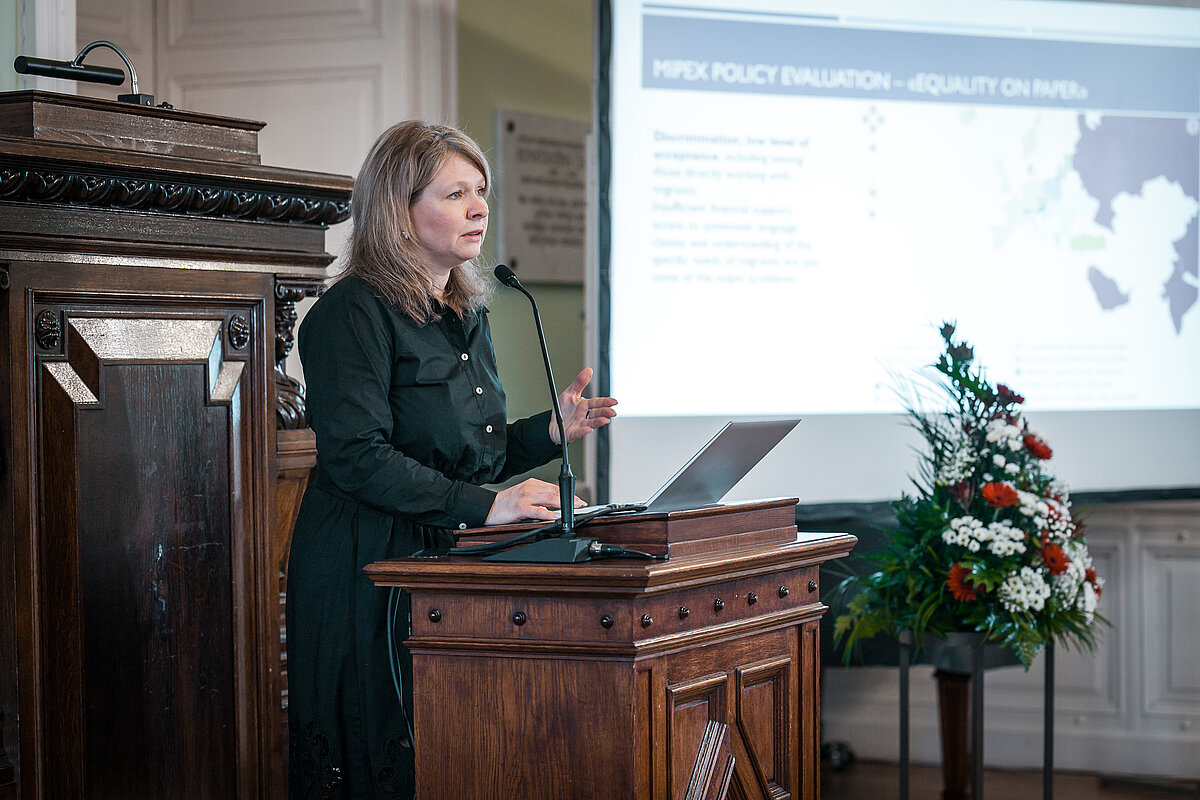
In her keynote lecture, “Migrants and Refugees: The Paradigm Shift and Fortress Europe”, tenured professor and Director of the Diaspora and Migration Research Center at UL, Inta Mieriņa, analyzed shifting public attitudes toward migration and the factors driving these changes. Across Europe, the growing influence of far-right parties has led to stricter immigration policies. This trend coincides with pressing demographic challenges, pushing countries to seek solutions for labor shortages. What does the future hold for Europe, and what choices lie ahead for Latvia? These are among the key questions explored in Professor Mieriņa's research.
Emeritus professor of geography at the University of Sussex, Russell King, in his speech titled “What Happens When the Free Movement of Persons Comes to an End? Brexit and the Paradoxes of Migration and Its Control,” examined the statistics behind the Brexit migration paradox and shared firsthand accounts of new EU migrants' experiences—including rejection, resistance, and adaptation. He described Brexit as a complex issue with unforeseen and often contradictory causes and consequences. One of the central themes driving the Brexit campaign was the desire to control and significantly reduce what was perceived as excessive immigration. However, following Brexit and the COVID-19 pandemic, immigration levels nearly tripled compared to pre-referendum figures.
Dr. Monika Szulecka, a researcher at the Centre of Migration Research, University of Warsaw, delivered a lecture titled "Migration Mechanisms and Migration Control in Times of Change: The Case of Poland." Poland has recently transitioned into a country of immigration, but between 2021 and 2022, its status as a new migrant destination became increasingly complex. The origins of migrants diversified (both from Europe and beyond), motivations varied (both forced and voluntary), and migration mechanisms evolved, necessitating a reassessment of migration policies and control measures. Dr. Szulecka highlighted key factors influencing migration and migration control in Poland, particularly the mass arrival of war refugees from Ukraine in 2022. To better understand these transformations, the Centre of Migration Research is conducting the research program “Between Ukraine and Poland” (2022–2026), which aims to build knowledge about the situation of Ukrainian migrants in Poland—both those who left Ukraine voluntarily and those who were forced to flee. Dr. Szulecka reflected also on other factors of change: the politicization of migration and an increasing focus on security discourse, especially concerning forced and economic migrants from non-European regions.
UL’s International Scientific Conference is one of the leading and most enduring scientific platforms in Latvia, bringing together thousands of scholars, researchers, and students from around the world each year. With nearly a century-long tradition, the conference has become an integral part of the academic landscape, fostering discussions on contemporary research achievements and shaping new challenges.
The conference will take place from January to March. Additional information and the full conference program can be found on the UL conference website: https://konference83.lu.lv/.
The video recording of the plenary session is available on UL’s YouTube channel.

 CONFERENCE
CONFERENCE
